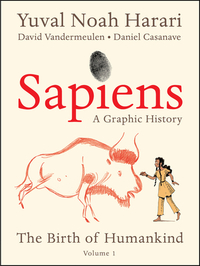You need to sign in or sign up before continuing.
Take a photo of a barcode or cover
challenging
informative
reflective
sad
fast-paced
This book has factual inaccuracies and is written from a euro-centric perspective which disregards and omits much of human evolution.
reading this and the 2nd one were very ground breaking for me - especially at the time I read them. The combination of coming off of taking "social foundations of education", dropping out of college and taking a semester off had done so much to make me sit with all my thoughts and qualms with the structures (particular school structures) and think deeper about them. I was already deeply anti-capitalist and had spent time with my critiques of our social and political structures. But something like taking a step back and asking myself why school structure/curriculum/pedagogy was the way it was and why - wasn't something I had fully dived into beyond being personally annoyed by them.
So to then read this book right as I was able to transfer to Temple, and see all of these thoughts, opinions, and frustrations reflected in anthropology, archeology, biology, and history was beyond validating/affirming. The line about us not being biologically adapted to our societal structures felt like such a specific weight lifted off my shoulders, and I really found the balance of feeling personal agency BUT with a relief of shame and blame for being so incompatible. I'm not broken!!
"it is no measure of health to be well adjusted to a profoundly sick society."
Other things that really stuck with me were:
-the sections on fictions
-the idea that being able to imagine is a mutation
-wheat domesticating us
-origins of language (which is what first inspired me to read this)
Did have a very large qualm with a section in this volume, which is only minorly addressed in the second volume, which is a lack of acknowledgment of force. There is a line where Yuval talks about our ability to believe fiction and narratives and that's how we function in large societies, but there is nothing noting how a disbelief in those narratives does not stop someone from still being a part of that system. I don't believe in or agree with capitalism, white supremacy, the united states, and its imperialism, etc. etc. it still controls my life though.
Also now - writing this review in April of 2024, it is hard to not have my views on this book be tainted by the fact that the author is Israeli, which I was not aware of until a month ago. Am in need of a reread.
So to then read this book right as I was able to transfer to Temple, and see all of these thoughts, opinions, and frustrations reflected in anthropology, archeology, biology, and history was beyond validating/affirming. The line about us not being biologically adapted to our societal structures felt like such a specific weight lifted off my shoulders, and I really found the balance of feeling personal agency BUT with a relief of shame and blame for being so incompatible. I'm not broken!!
"it is no measure of health to be well adjusted to a profoundly sick society."
Other things that really stuck with me were:
-the sections on fictions
-the idea that being able to imagine is a mutation
-wheat domesticating us
-origins of language (which is what first inspired me to read this)
Did have a very large qualm with a section in this volume, which is only minorly addressed in the second volume, which is a lack of acknowledgment of force. There is a line where Yuval talks about our ability to believe fiction and narratives and that's how we function in large societies, but there is nothing noting how a disbelief in those narratives does not stop someone from still being a part of that system. I don't believe in or agree with capitalism, white supremacy, the united states, and its imperialism, etc. etc. it still controls my life though.
Also now - writing this review in April of 2024, it is hard to not have my views on this book be tainted by the fact that the author is Israeli, which I was not aware of until a month ago. Am in need of a reread.
informative
reflective
relaxing
slow-paced
Was not always my style but I appreciate how the author tries really hard to give objective views of our current knowledge on history and the art style is beautiful
Reminder to read the actual book because this one had very repetitive facts.
challenging
informative
reflective
medium-paced
i understand certain aspects of human history and evolution like never before
"¡Escúcheme! Las compañías se crean de la misma manera que los dioses: Se trata de contar una historia y convencer a la gente."
Yuval Noah Harari, David Vandermeulen y Daniel Casanave.
Yuval Noah Harari, David Vandermeulen y Daniel Casanave.
funny
informative
reflective
sad
fast-paced
informative
slow-paced




